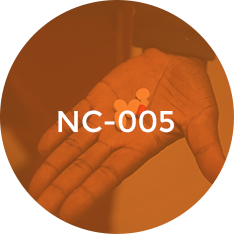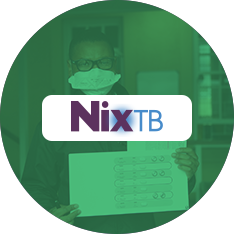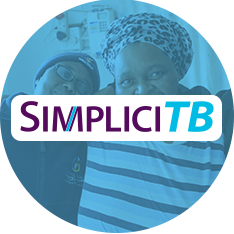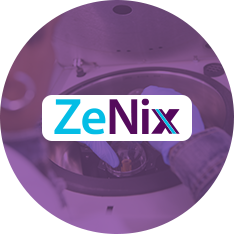Clinical Development
The drive for new cures
An Emerging Treatment Paradigm
In 2017, TB Alliance continued its progress toward advancing new drug regimens that could significantly impact the TB pandemic. Results from late-stage clinical trials (NC-005 and Nix-TB) point to the possibility of a new treatment paradigm consisting of two short, simple regimens to treat all people with TB.

Late-Stage Clinical Trials in 2017

The NC-005 trial tested the BPaZ and BPaMZ drug regimens (made up of bedaquiline, pretomanid, moxifloxacin and pyrazinamide), and a simpler dosing scheme for bedaquiline, in patients with drug-sensitive and multidrug-resistant-TB (MDR-TB) in an eight-week, phase 2b trial at 10 sites across Uganda, South Africa and Tanzania. Two hundred forty patients were enrolled—180 with drug-sensitive TB and 60 patients with MDR-TB.
Key facts
- Results were presented at the Conference on Retroviruses and Opportunistic Infections (CROI), held in Seattle, Washington, February 13–16, 2017.
- Almost all of the patients that received the BPaMZ regimen cleared TB bacteria from their sputum within two months of treatment.
- MDR-TB patients receiving BPaMZ cleared TB bacteria more than three times faster than those with DS-TB on the standard treatment regimen.
- 200 mg of bedaquiline given daily for two months appeared at least as active and safe as the labeled dose, which requires a complex dosing regimen of three times per week after two weeks of daily dosing.

Nix-TB is an open label, phase 3 clinical trial testing BPaL (bedaquiline + pretomanid + linezolid) in patients with XDR-TB—one of the deadliest forms of tuberculosis—and those with MDR-TB whose prior treatment has failed. Participants at three South African trial sites are treated for six months and are being monitored for relapse for 24 months following the start of treatment.
Key facts
- A preliminary report presented at a February 2017 CROI conference showed 34 patients had successfully completed the six-month course of treatment and six months of follow-up.
- Enrollment completed in November 2017 with 109 patients, with participating sites transitioning to the ZeNix trial.
Looking Ahead: 2018 and Beyond

The SimpliciTB clinical trial will seek to test a novel regimen consisting of bedaquiline (B), pretomanid (Pa), moxifloxacin (M) and pyrazinamide (Z) (BPaMZ), previously studied in the NC-005 clinical trial.
Key facts
- SimpliciTB will evaluate the effectiveness of four months of BPaMZ in people with drug-sensitive TB compared to six months of the standard regimen of isoniazid, rifampicin, pyrazinamide and ethambutol (HRZE).
- The trial will also assess the safety, tolerability and efficacy of a six-month BPaMZ regimen for patients with MDR-TB.
- SimpliciTB will be a global, multicenter trial in Asia, Europe, Africa and South America.

The ZeNix clinical trial, which began in 2017, will continue to test the BPaL regimen, seeking to optimize the use of linezolid. It is testing the regimen on people with XDR-TB, pre-XDR-TB or MDR-TB who have failed or are intolerant to treatment.
Key facts
- ZeNix is evaluating the dose and duration of linezolid in the BPaL regimen in an attempt to limit toxicity while preserving efficacy.
- The first patient was enrolled in November 2017 with up to 180 patients expected to enroll by 2019.
- Trial sites include Georgia and South Africa, with sites in Russia expected to join in 2018.

